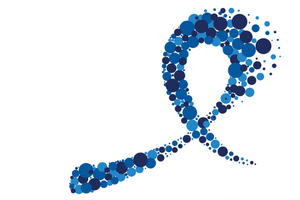What You Need to Know About Colorectal Cancer
Posted on
Excluding skin cancers, colorectal cancer is the third most common cancer diagnosed in both men and women in the United States. In 2022, approximately 106,180 people will be diagnosed with colon cancer and 44,850 with rectal cancer, according to estimates from the American Cancer Society.
 While the overall rate of colorectal cancer diagnosis has been dropping since the 1980s, that trend is mostly among older adults. Among younger adults, colorectal cancer rates have been rising since the mid-1990s, a trend that prompted the American Cancer Society to change the recommended age to begin colorectal cancer screening from 50 to 45.
While the overall rate of colorectal cancer diagnosis has been dropping since the 1980s, that trend is mostly among older adults. Among younger adults, colorectal cancer rates have been rising since the mid-1990s, a trend that prompted the American Cancer Society to change the recommended age to begin colorectal cancer screening from 50 to 45.
Here’s what you need to know about colon and rectal cancer risk factors, prevention, and screening.
What are the risk factors for colorectal cancer?
Risk factors for colorectal cancer include being older than 50, being extremely overweight, smoking, a diet heavy in red and/or processed meats, and moderate to heavy alcohol use. There are also several risk factors that involve hereditary conditions or personal or family health history, including a personal history of colorectal polyps or colorectal cancer, inflammatory bowel disease, ulcerative colitis, Crohn’s disease, type 2 diabetes, and inherited syndromes including Lynch syndrome (hereditary non-polyposis colorectal cancer, or HNPCC) or familial adenomatous polyposis (FAP).
How can I reduce my risk for colorectal cancer?
Some risk factors are not within your control, but some are. To reduce your risk of colon and rectal cancer, eat a healthy diet, maintain a healthy weight, incorporate regular physical activity into your lifestyle, stop smoking, limit alcohol consumption, and get screened for colorectal cancer.
Why should I be screened for colorectal cancer?
Screening is painless and very effective at identifying rectal or colon cancer in its earlier stages, when it’s easier to treat. If caught early, before it has spread to other areas of the body, rectal cancer has an 89% 5-year relative survival rate and colon cancer has a 91% 5-year relative survival rate. That means that people who have localized colorectal cancer (i.e., not found outside the colon or rectum), are about 89% or 91% as likely as people who don’t have that cancer to live for at least 5 years after being diagnosed. If colon or rectal cancer spreads to other parts of the body near the colon, the 5-year relative survival rate is 72%. If it has spread to distant areas of the body, like the liver or lungs, the 5-year relative survival rate is just 16% for rectal cancer, 14% for color cancer.
Who should be screened for colorectal cancer?
The American Cancer Society recommends regular screenings for both men and women at average risk starting at age 45 and continuing through the age of 75. For people who are between 75 and 85 and are in good overall health, colon cancer screening is optional, and the decision regarding whether to continue screening should be based on their preferences, overall health, life expectancy, and past screening history. People over 85 should no longer be screened for colon cancer. People at a higher risk may need to start screening earlier than age 45, or get screened more frequently or with specific tests. If you have risk factors for colorectal cancer, consult your doctor about your specific history to decide what makes sense for you.
What does colorectal cancer screening involve?
There are several types of colorectal cancer screening, including testing the stool for blood, flexible sigmoidoscopy, a stool DNA test, colonoscopy, and specialized CT scans. Colonoscopy is widely recognized as the best screening method for the early detection and prevention of colorectal cancer. Consult your doctor to determine the best screening option for you.
For more information on colorectal cancer screening, visit https://www.leevercancercenter.org/care-services/cancer-screening/colon-cancer-screening/
Sources: American Cancer Society:
- https://www.cancer.org/latest-news/six-ways-to-lower-your-risk-for-colon-cancer.html
- https://www.cancer.org/cancer/colon-rectal-cancer/detection-diagnosis-staging/survival-rates.html
- https://www.cancer.org/cancer/colon-rectal-cancer/causes-risks-prevention/risk-factors.html
- https://www.cancer.org/cancer/colon-rectal-cancer/detection-diagnosis-staging/acs-recommendations.html
